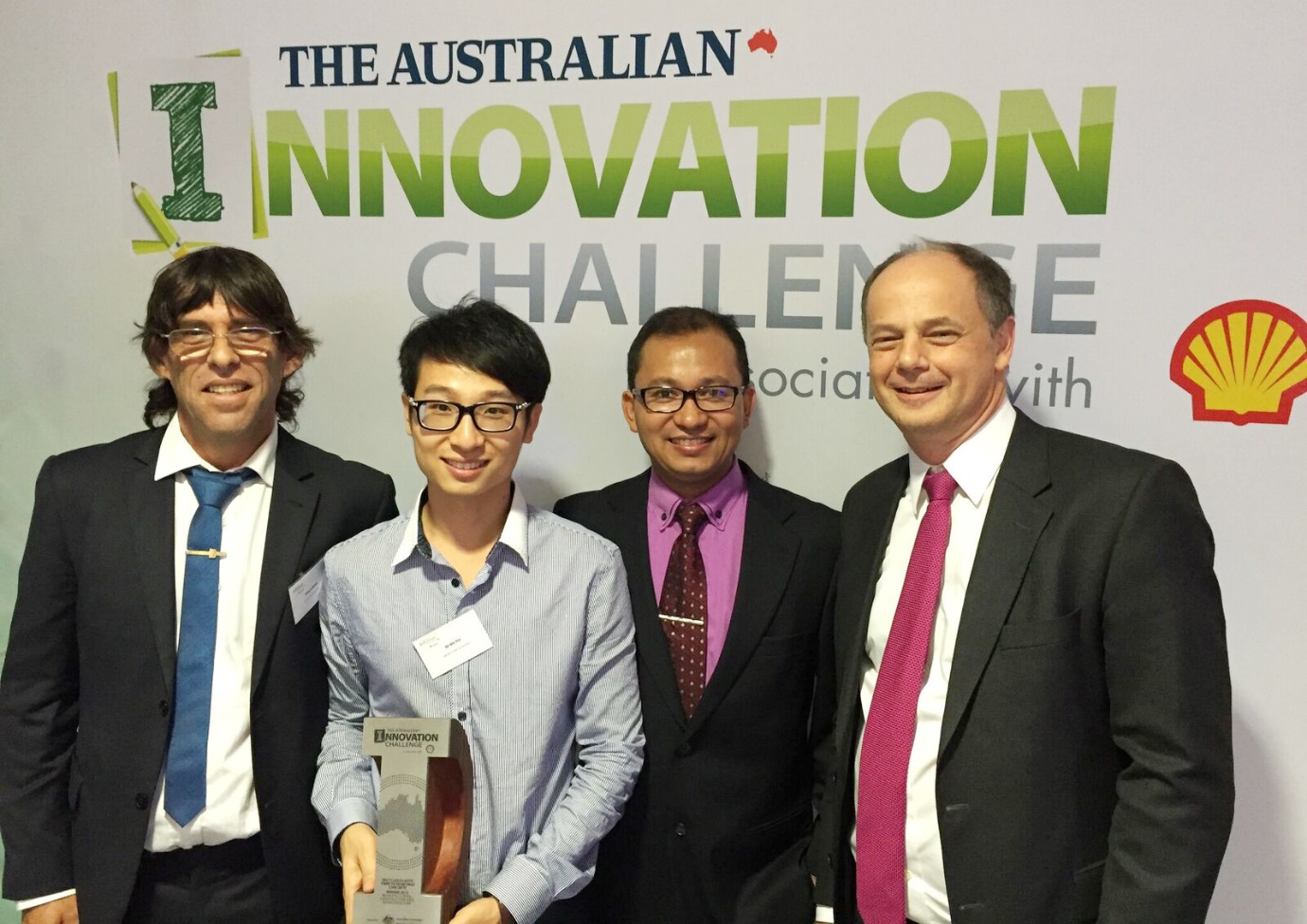JCU team wins innovation award for ‘green’ concrete
Research by James Cook University scientists that looks set to drastically reduce the environmental cost of concrete has won a prestigious innovation award.

The technology, developed at JCU through PhD student Shi Yin’s research under the supervision of Dr. Rabin Tuladhar and in collaboration with Queensland-based company Fibercon, has won the Manufacturing, Construction and Innovation category at this year’s Australian Innovation Challenge.
“We’ve produced recycled polypropylene fibres from industrial plastic wastes. With our improved melt spinning and hot drawing process we now have plastic fibres strong enough to replace steel mesh in concrete footpaths,” said Dr Tuladhar.
He said that the use of recycled plastic waste in concrete makes the building product much more environmentally friendly.
“Using recycled plastic, we were able to get more than a 90 per cent saving on CO2 emissions and fossil fuel usage compared to using the traditional steel mesh reinforcing. The recycled plastic also has obvious environmental advantages over using virgin plastic fibres.”
Concrete is second only to water as the material most commonly used by humankind, with 24 billion tonnes poured globally every year.
Use of recycled plastic fibres in concrete eliminates the need for steel mesh and saves significant amounts of CO2 associated with steel production. Comprehensive life cycle assessment shows the production of recycled plastic fibre produces 90% less CO2 and eutrophication (contamination of water bodies with nutrients) compared to the equivalent steel.
Plastic fibre has already been used in the construction of a 100m-long concrete footpath at James Cook University and pre-cast concrete drainage pits designed by Fibercon.
Dr Tuladhar said the next phase of the research will examine enhancing the mechanical and bond properties of fibres using surface modification and looking into broader applications of recycled plastic fibres in other pre-cast concrete elements.
More Information
Media Enquiries:
Dr
Rabin Tuladhar
P (07) 4781 5381 E:rabin.tuladhar@jcu.edu.au
Link to pics: http://bit.ly/1QfybxX
Published:
03, December 2015